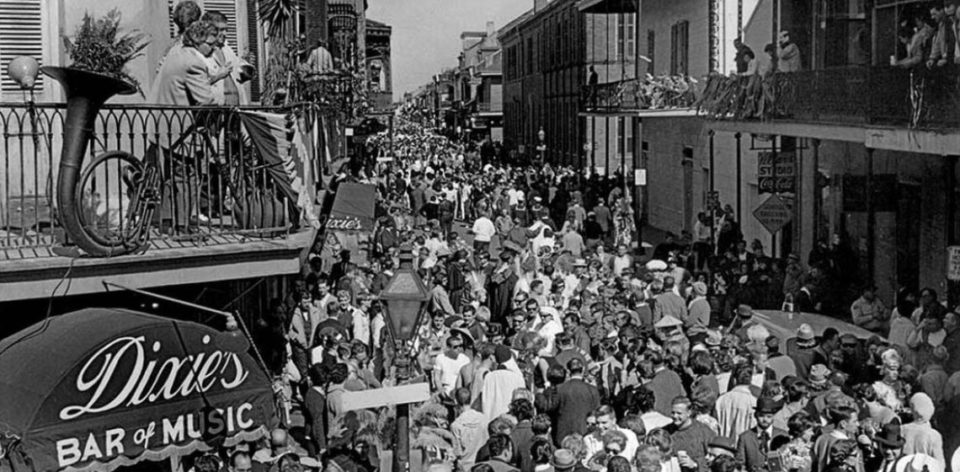This February, before the whole world went into lockdown, a dream of mine came true. I managed to go to New Orleans. To explore the city we found the best tour guide possible, a local drag queen who told us about queer and sex work history instead of just the mainstream facts that are easy to find on Wikipedia. This was where I first heard the name of Miss Dixie, one of the most notorious lesbians of New Orleans. Her story was so interesting that I felt like I had to know more about it.
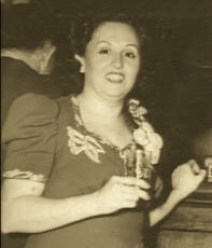
Yvonne Fasnacht, known by everyone just as Miss Dixie, was successful in areas where, as a woman in the 30’s and 40’s, it almost seemed impossible: she was a musician and a bar-owner. As a saxophone player she was famous for playing exclusively in women-only bands, and the bar she operated with her sister Irma was open for everyone but was mostly frequented by LGBT patrons. From the 1930’s until her death Miss Dixie was a respected and beloved figure in New Orleans even in times when serving such clientele was illegal.
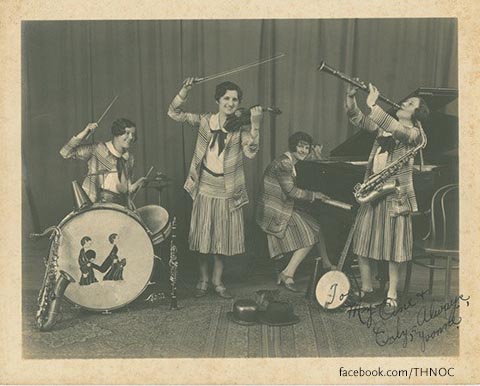
Dixie’s Bar of Music was not some shabby bar in a hidden alley but a well-known place on Bourbon Street in the distinguished French quarter, which was open until the mid-60’s. It was frequented by famous people and politicians too, such as Truman Capote, Tennessee Williams and Rock Hudson.
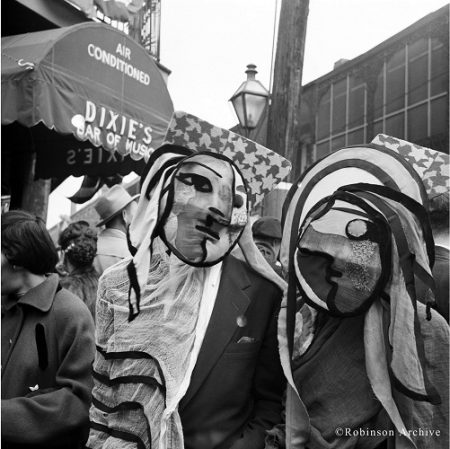
During these times it was illegal to serve gay and lesbian customers and everyone had to dress according to their birth sex. The rules were ensured by police raids, where everyone got arrested who dared to dance with a same sex partner or wore clothes that didn’t match their birth sex. Miss Dixie had known many important people in the city, with influential policemen amongst them, so in many cases they had known when the police raids were to be expected. In these situations either her, or her sister Irma signalled to the people by ringing the bell on the bar, so they had time to organize themselves in man-woman couples or quickly swap clothes if needed. Sometimes however it occurred that the raid really took them by surprise and patrons were arrested on charges of indecency, but Miss Dixie made sure not to leave anyone behind bars and paid their bail from the bar’s register.
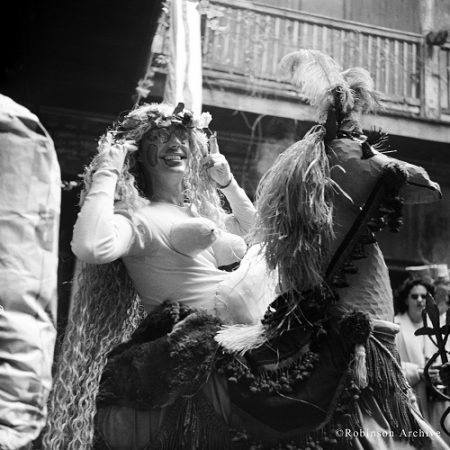
The bar played an important role in connection with Mardi Gras, the parades and balls that are organized in New Orleans during the carnival season. This is the place where the wealthy men got to know each other who later founded Yuga, the first krewe with only gay members. Krewes are groups that organize parades and also balls during Mardi Gras and Yuga’s balls were frequently attended by Miss Dixie’s regulars. One time in the 1960’s the krewe organized their annual ball in a school building. They tried to cover the event as a bachelor party but unfortunately they were busted. The police accompanied with their dogs surrounded the building and arrested a large number of people. Those who managed to flee through the windows were later captured in the forest when the light of the flashlights reflected on the glittery clothes. Luckily a few attendees managed to escape, so the news about the arrests spread quickly and Miss Dixie was notified about the events. She didn’t hesitate to get a lawyer in the middle of the night and also paid the bail from her own pockets. Unfortunately even she couldn’t stop the names of the arrested individuals becoming public, and a lot of them lost their jobs or were sent to jail.
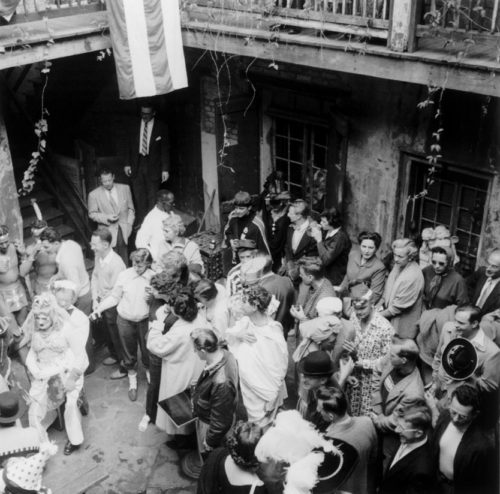
After the closure of the bar Miss Dixie and Irma moved into a downtown apartment where they kept on with their extravagant lifestyle and remained the center of social life. Miss Dixie passed away in 2011 at 101 years old.
Translated by Ibolya Nagy

